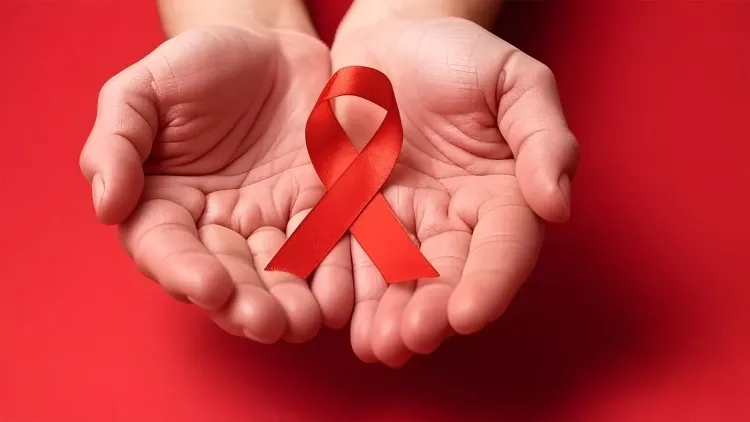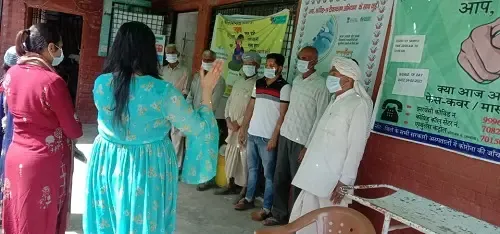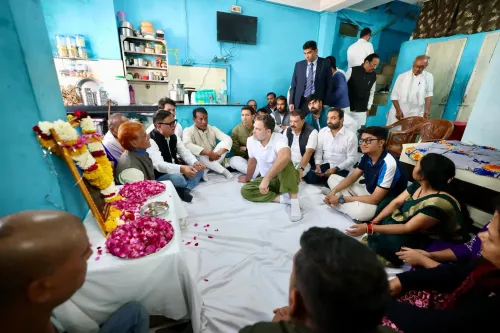Why is WHO Advocating for a Biannual Lenacapavir Injection for Global HIV Prevention?

Synopsis
Key Takeaways
- WHO recommends lenacapavir as a biannual HIV prevention option.
- The injection is a significant advancement over daily pills.
- Funding cuts threaten progress in HIV treatment and prevention.
- Accessibility and adherence are critical for effectiveness.
- Global collaboration is essential for implementing this innovation.
New Delhi, July 14 (NationPress) The World Health Organization (WHO) announced on Monday its recommendation for countries to adopt the lenacapavir injection, administered twice a year, as a supplementary pre-exposure prophylaxis (PrEP) strategy for global HIV prevention.
This groundbreaking policy initiative aims to transform the global response to HIV and was unveiled during the 13th International AIDS Society Conference (IAS 2025) focused on HIV Science in Kigali, Rwanda.
Lenacapavir is recognized as the first injectable PrEP product that is administered biannually, providing a robust and long-lasting alternative to traditional daily oral medications and other shorter-term solutions.
With just two doses annually, lenacapavir represents a significant advancement in safeguarding individuals at risk of HIV, particularly those facing challenges related to daily medication adherence, stigma, or access to healthcare services. This drug received approval from the US Food and Drug Administration (FDA) just a month prior.
“While an HIV vaccine is still out of reach, lenacapavir serves as an excellent alternative: a long-lasting antiretroviral proven in trials to prevent nearly all HIV infections among high-risk populations,” stated Dr. Tedros Adhanom Ghebreyesus, Director-General of WHO.
The WHO's recommendation arrives at a time when funding for HIV treatment and prevention is dwindling, jeopardizing years of progress made against this lethal disease.
The United States, a key contributor to global HIV funding, ceased all assistance on January 20, immediately following the inauguration of new President Donald Trump.
A recent report from UNAIDS warned that a permanent halt to support from the US President’s Emergency Plan for AIDS Relief (PEPFAR) could result in over four million additional AIDS-related fatalities and six million new HIV infections by 2029.
“The introduction of WHO’s updated guidelines, alongside the FDA’s recent endorsement, marks a pivotal moment in broadening access to this powerful preventive measure,” Ghebreyesus emphasized.
Marketed under the brand name Yeztugo, this pioneering biannual HIV prevention injection has the potential to revolutionize pre-exposure prophylaxis (PrEP) methods. This treatment may be particularly vital for individuals who struggle with daily medication adherence due to stigma, accessibility issues, or lifestyle constraints.
However, the steep price tag of $28,218 per person annually could hinder efforts to achieve global HIV prevention objectives.
The WHO chief reiterated the organization’s commitment to collaborating with nations and partners to ensure that this innovative treatment reaches communities swiftly and safely.
The WHO has also called upon governments, donors, and global health allies to initiate the implementation of lenacapavir within national combination HIV prevention programs immediately, while gathering crucial data on uptake, adherence, and real-world effectiveness.
“We possess the resources and knowledge necessary to eradicate AIDS as a public health issue,” stated Dr. Meg Doherty, Director of WHO’s Department of Global HIV, Hepatitis, and STI Programmes. “What we require now is decisive action based on these recommendations, rooted in equity and driven by community engagement.”










